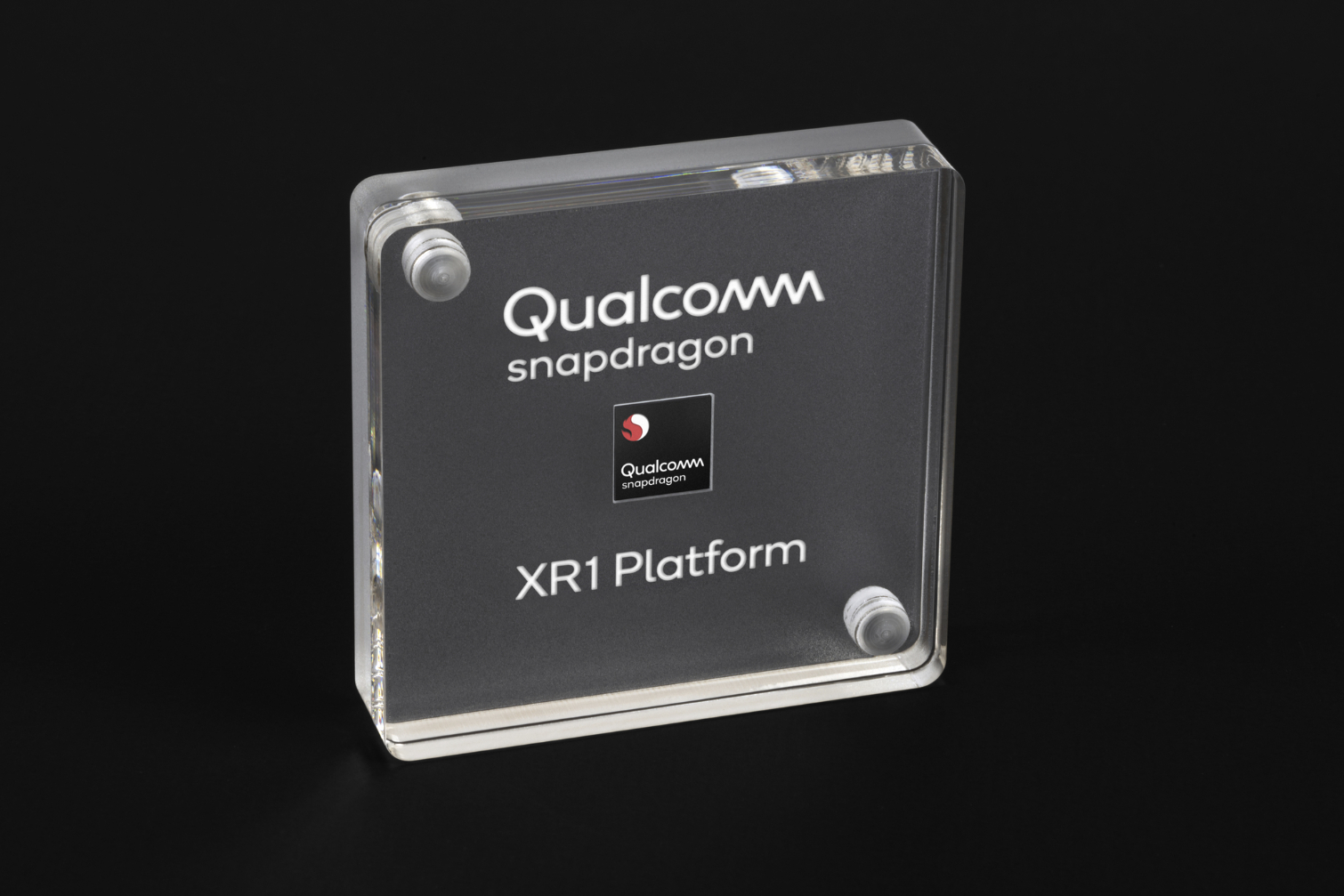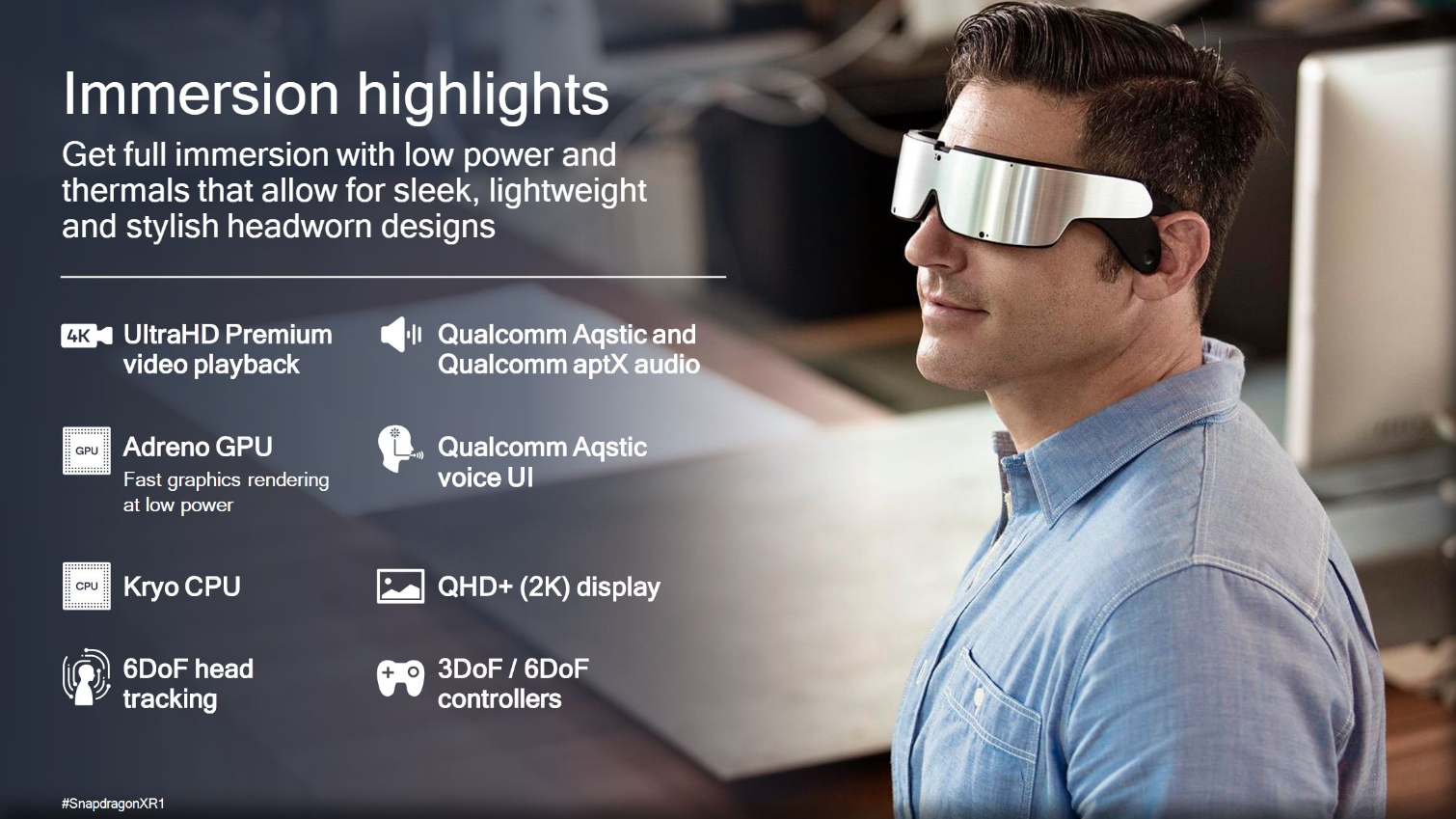Qualcomm Releases XR1, a New CPU for AR / VR Headsets
Qualcomm today introduced the Snapdragon XR1 Platform, the first SoC dedicated exclusively for extended reality (XR) industry.
Qualcomm has been playing the mobile XR game for longer than anyone in the market. The company makes the SoCs that power most of the VR-capable smartphones on the market, and for at least three years the company has offered a program to help hardware developers use the Snapdragon SoC lineup to power VR and AR devices.
Several companies have adopted Qualcomm’s headset platform and the devices that they have produced sit at the top of the mobile VR and AR market, including Oculus for the Gear VR and Go platform, Google for the Daydream platform, Lenovo for the Mirage Solo Daydream Headset, and ODG with its R8 and R9 smartglasses. However, those devices were built atop Qualcomm’s adapted-for-VR smartphone offerings. Qualcomm built the new Snapdragon XR1 for the mainstream segment of the XR market to help bring the costs of high-quality XR devices to mass-market price points.
In the words of Hugo Swart, Head of XR Business Group, Qualcomm: "“The XR1 Platform will fuel the rebirth of AR glasses for the masses with small form factors and right balance of features for high quality devices.”
Qualcomm didn’t release many specifics about the XR1 platform's hardware, and a Qualcomm representative told us that it won't be releasing specifics. The new SoC features an ARM-based multicore Kyro CPU, an Adreno GPU, and a Hexagon Vector processor.
Qualcomm said that the XR1 platform isn’t as powerful as the company’s flagship Snapdragon 845 SoC, but it’s less expensive to produce. The Snapdragon 845 offers a “premium XR” experience, whereas the XR1 offers a “high-quality XR” experience. The company compared the XR1’s performance to that of the Snapdragon 821 found in the Oculus Go headset.
The Snapdragon XR1 also features a Qualcomm AI Engine, which helps monitor and manage power consumption and thermal efficiency.
Get Tom's Hardware's best news and in-depth reviews, straight to your inbox.
“AI will be important for AR glasses in various scene understanding scenarios. XR1 not only supports high quality immersion but also lays the foundation for developers to use machine learning in their apps making them more pertinent to the environment,” Swart wrote in a prepared statement.
The XR1 platform also offers an updated Spectra Image Signal Processor (ISP) and new software algorithms that improve image quality for AR devices. And it supports object classification and pose prediction technology with machine learning and computer vision algorithms. Furthermore, the XR1 platform supports three and six degrees-of-freedom (3DoF, 6DoF) tracking for the headset and controllers.
Qualcomm didn’t say when we could expect Snapdragon XR1 devices to hit the market, but it said that several partners, including Meta, Vive, Vuzix, and Pico are already developing devices around the new SoC.
Kevin Carbotte is a contributing writer for Tom's Hardware who primarily covers VR and AR hardware. He has been writing for us for more than four years.

